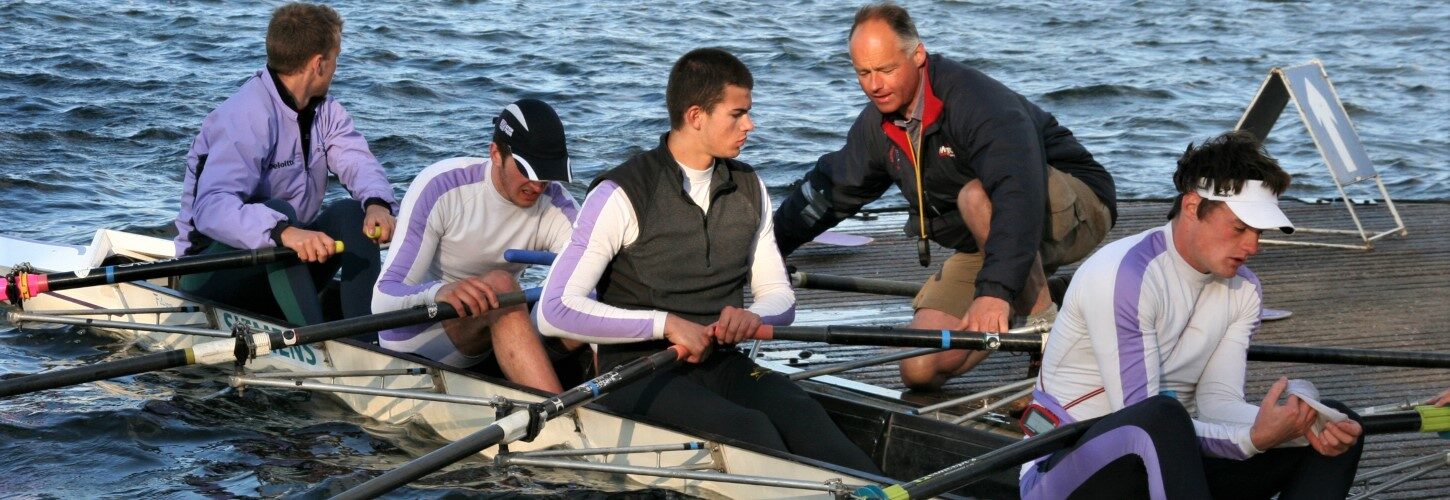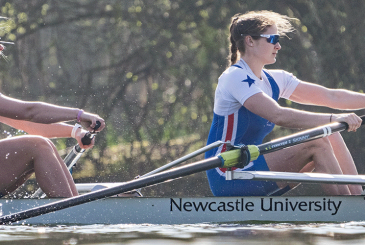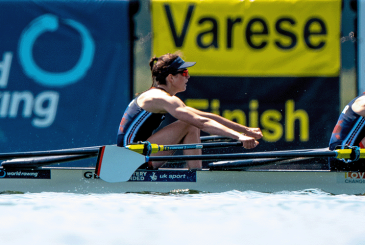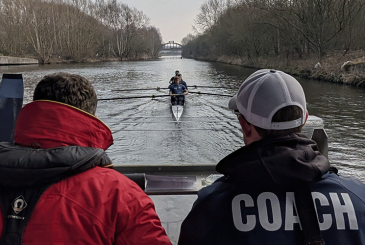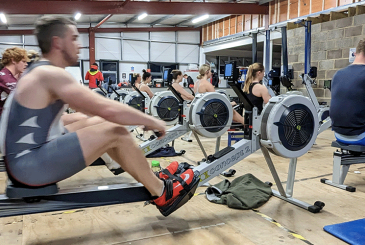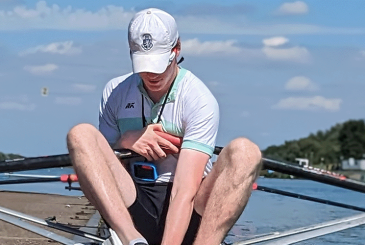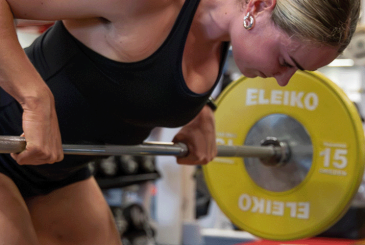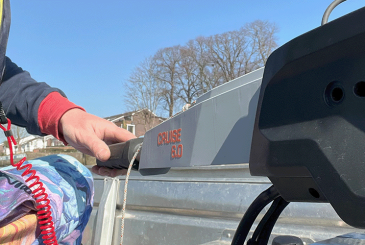It is 20 years since Wade Hall-Craggs returned to Durham University as head coach, taking with him his trademark Barbour coat, his shorts and his labrador, Sam. And there have been plenty of highlights on the water since then. After stepping down from his role at Durham last month, Hall-Craggs talks about his career with Martin Gough
Palatinate-clad hoards mobbed the British Universities and Colleges Sport (BUCS) Regatta in Nottingham, winning the Victor Ludorum trophy every year from 2004 to 2013.
Durham University Boat Club (DUBC) celebrated victory at Henley Women’s Regatta 12 times in the first 15 years under Hall-Craggs. They won at Henley Royal in 2005 and have had athletes in winning composite crews three times since.
Of that, what stands out for Hall-Craggs?
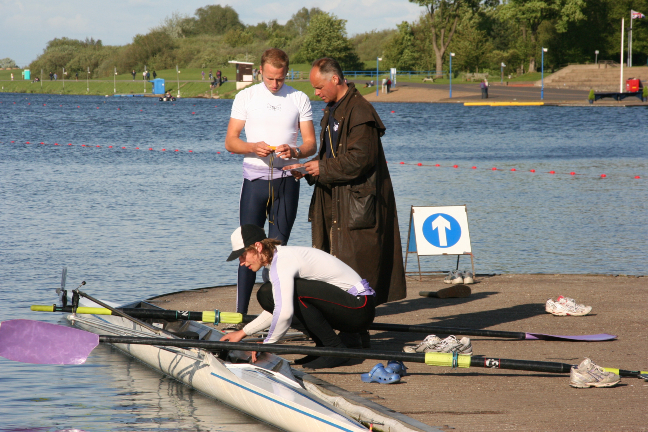
The 54-year-old pauses an unnervingly long time before replying: “I struggle to pick out a victory. The bit for me that was most rewarding was how some of the individuals grew – that’s really special – rather than the crew achievements.”
“We can inspire people to really step up with what they feel they can achieve. Those are the stories that really make sport worthwhile”
Durham alumni have regularly progressed into Great Britain colours over the last two decades. Steve Rowbotham took up the sport as part of the university’s fresher programme and went on to win Olympic bronze in the double scull in 2008. Sophie Hosking became an Olympic champion four years later and sculler Angus Groom is in the squad now.
Durham athletes have regularly featured at under-23 level, something Hall-Craggs describes as one of his key performance indicators. At the U23 Worlds in Florida just over a year ago, George Bourne, Lauren Irwin and Oscar Lindsay all came away with medals.
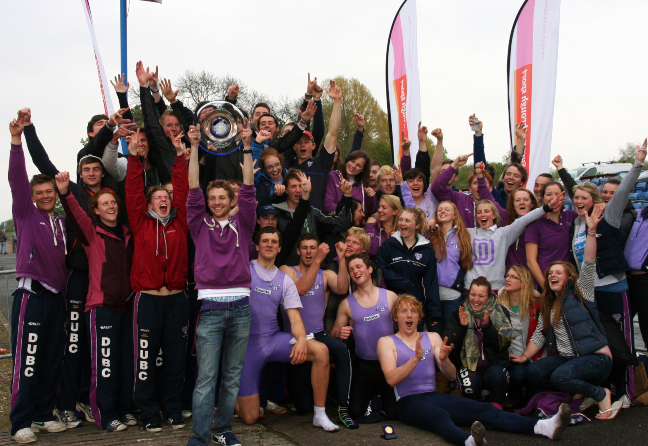
Hall-Craggs picks out the story of local girl Irwin, in particular, because “it shows the whole package of what we were trying to do at Durham”.
He explains: “We identified Lauren, aged 12, at a regional indoor programme we run at the university. My wife Emma was running the community outreach programme and got us to run a learn-to-row course to see whether she liked the sport, then directed her to one of the local clubs [Chester-le-Street RC].
“We have a junior high-performance academy, where students volunteer to coach. She was brought through that over a number of years. She then came to the university and through our programme.
“That would be one of the highlights for me, for our programme.”
Sculling camps on the rivers Wear and Tyne have involved up to 90 young people each summer, bringing in revenue for the boat club but also a chance to attract local young people – many of whom come from disadvantaged backgrounds – to set their sights on studying at the university,
“A girl from Cambois RC used to come on the camps,” says Hall-Craggs. “She was at a school with 1,500 people and in her year only two of them went to university.
“She went to Durham. She set her sights on that because she had been to the sculling camps and that’s changed her life.
Hall-Craggs’ approach over the last 20 years has been thoroughly modern – he was the first professional coach in the North East
“At that young age, we can inspire people to really step up with what they feel they can achieve. Those are the stories that really make sport worthwhile.”
DUBC has played a part in the regrowth of the rowing scene on the River Tyne, once a hotbed of the sport to rival the Thames in London. The university partnered with Tyne United RC in 2007 to build a new boathouse.
“There were 30-odd clubs on the Tyne at one stage. When we arrived on the Tyne in 2000, we would go weeks without seeing anyone,” says Hall-Craggs.
“Now it’s a bit like being on the Tideway: you’re struggling to keep up with your crews because you’re going to wash somebody else down. It’s a phenomenal transformation.”
Hall-Craggs’ approach over the last 20 years has been thoroughly modern – he was the first professional coach in the North East – but his roots both in the sport and in the area go way back.
“He would regale us with stories as he filled the room with pipe smoke. He kept us all spellbound”
His father and grandfather both rowed in the Boat Race for Cambridge. His great grandfather, EH Craggs, raced the Cambridge Trial Eights in 1883 but did not make the blue boat. He later gave land to Tees Rowing Club to build their boathouse.
Hall-Craggs says his own involvement in rowing “probably grew out of frustration with playing games and a total inability to hit the ball”.
His father John bought a wooden scull when Eton College were having a sell-off, and the youngster learned to row it on the Kennet and Avon canal near his home in Newbury.
“All the canal bridges are pretty narrow, so I developed an early habit of swimming and learning to get back into the boat. I don’t think I had a season when I didn’t capsize all the way through my watery career.”
“I’ve been working with a young coach, watching how she doesn’t impart the information but gets them to come up with the answer themselves. To me, that’s good coaching”
That career included Henley wins at Shrewsbury School then with Durham, where he read archaeology at Grey College from 1985-88. After moving to London – on arrival sleeping under the Tideway Scullers School pool table – he went on to represent Great Britain in the single scull at the 1992 Olympics.
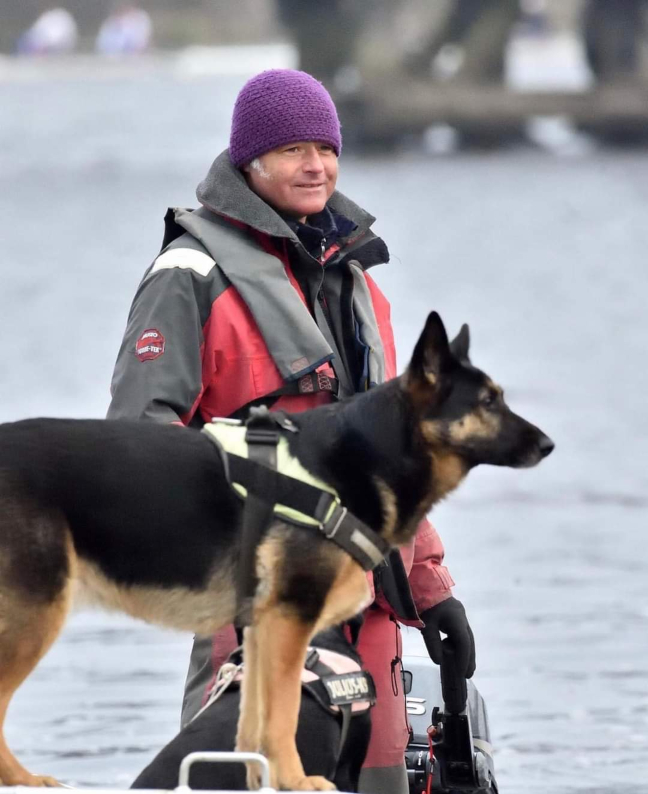
Hall-Craggs was far from the only individual influenced by Eric Halladay, Durham coach for 30 years from 1964.
“He taught deep-seated values of comradeship and camaraderie as he huddled us together in the boiler room of the boathouse we used then – the only room for miles that had a couple of degrees of temperature.
“He would regale us with stories as he filled the room with pipe smoke. He kept us all spellbound.
“I wouldn’t pretend to be able to match what he did. The importance of the club, how people behaved within it and its culture, has had to come to the fore more recently, so I have been referring to him a lot as a standard bearer.”
I ask when Hall-Craggs first realised he had an aptitude for coaching, and he pauses.
“I don’t think I have. I think what I have is a passion for the sport. I watch considerably better coaches deliver a message much better.
“What we can do to mentor young coaches in the region is something I would like to see as a bit of a legacy”
“I’ve been working with a young coach, watching how she doesn’t impart the information but gets them to come up with the answer themselves. To me, that’s good coaching.”
As we speak, more names come to the fore as graduates of the Durham programme who have established themselves as leading coaches.
David Blackham coached what Hall-Craggs calls “the university’s best ever fresher eight” (including Steve Rowbotham) while still a student himself, went into teaching and is now Head of Rowing at King’s School, Chester.
Dan Moore, who started coaching aged 16 in a mentoring programme through the university, is now based with the Great Britain squad at Caversham.
Hall-Craggs is still keen to work in the area of coaching development, saying: “What we can do to mentor young coaches in the region is something I would like to see as a bit of a legacy, either students at the universities or schoolkids.
He talks about the challenges in coach education around performance coaching.
“How do you set a programme up, so that people draw the conclusions you want them to, rather than you explaining it?”
Our conversation on Zoom is joined at this point by a black labrador named Hector, great-great-great grandson of Sam. His exercise may be more land-based from now on, but his owner doesn’t appear in any mood to settle into retirement.
For a start he is secretary of the Wingfield Sculls, which enjoyed a bumper event on the Tideway this autumn while most races struggled.
“I’ve still got a passion for the sport, without a shadow of a doubt,” he says.
“I still think it offers people amazing opportunities. There’s a lot of talented athletes who aren’t necessarily good at games. Just because you can’t catch or kick a pig’s bladder doesn’t mean you’re a write-off.
“We have people out there who have been rejected by other sports. A huge asset for rowing is that we can give them an expression.”
Photos: Al Johnston and Fiona Rennie


